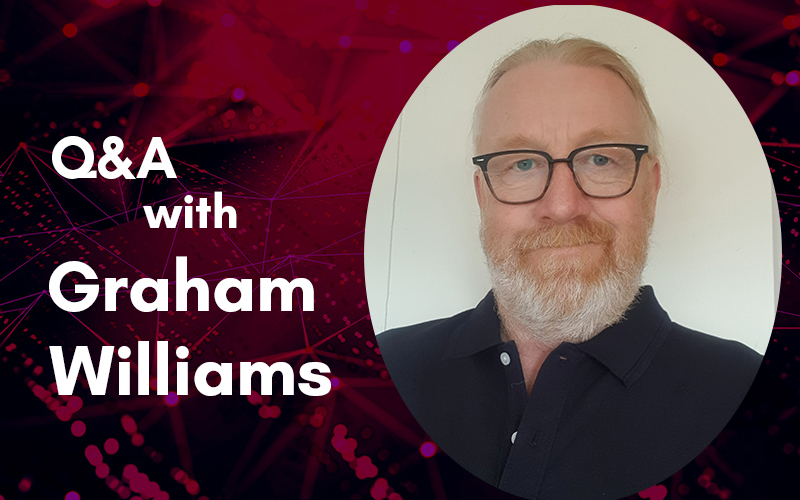As we adjust to rapidly advancing technologies across industry, building the necessary skills to keep up remains critical. Ensuring your teams and workforces are building highly relevant, industry-specific, and up-to-date skills becomes a whole lot easier with a great trainer.
One of the key advantages of using Skills Lab to train your teams and workforces is that our trainers are highly skilled, expert trainers with real industry experience.
Our newest trainer, Graham Williams is no exception.
With more than 20 years of industry and training experience in instrumentation and automation, Graham’s knowledge and experience provides an invaluable asset in helping upskill your team through Skills Lab in 2022 and beyond.
We got to know Graham a bit better through a quick Q&A!

What is your role at Skills Lab?
I’m a trainer with Skills Lab. I’ll be training a cohort of technicians, who I like to refer to as paraprofessionals.
Which locations do you train from?
Although I’m based in Victoria, Skills Lab offer training opportunities nationally. We make that really clear, particularly with cyber physical training, that there are no real geographical boundaries.
National, at least - maybe even international one day.
What is cyber physical training?
Cyber physical training is a form of online training where students connect remotely to a computer in a laboratory.
The computer is connected to a simulated process environment that they can then write code for, and while watching on cameras, see the results of their programming and run simple processes.
Cyber physical training provides a really good feeling of physical feedback which you never get in traditional online software learning environments.
It’s an online format but, in the end, the students’ work can be seen to operate machinery – replicating an in-lab experience.
Cyber physical training provides a really good feeling of physical feedback which you never get in traditional online software learning environments.
Cyber physical training allows your team to upskill from home.
What’s been your career journey prior to working with Skills Lab?
I’ve been in training a long time. I spent 17 years with RMIT (the Royal Melbourne Institute of Technology), teaching technicians certificate courses, diploma courses, and some advanced diploma courses in a vocational engineering school within the University.
...For more than 20 years I worked for various companies right around Australia, working in sectors including mining, resources, food, pharmaceutical, plastic, and petrochemical.
Prior to that, I worked as an instrumentation and electrical technician, initially starting as an apprentice electrician and then apprentice instrument maker with Rio Tinto.
Following this experience, for more than 20 years I worked for various companies right around Australia, working in sectors including mining, resources, food, pharmaceutical, plastic, and petrochemical.
I had a wide range of roles along the way, including commissioning, maintenance, project work, project management, and later, research and development with General Motors Holden. It’s a long history!
Do you specialise in a particular area of training?
Instrumentation and automation.
What makes you passionate about this work?
I love the technology aspect! I’ve always been interested in technology since I was a kid and I like to work out how things work. It was my dad who suggested that I get into electrical and instrumentation because he was sick of me pulling his alarm clocks apart!
Technology is developing really fast, so it’s always challenging. You never get bored with technology!
I was an apprentice in heavy industry (mining), and right about the time I started was when electronics was taking off, and then computers, and then now what we’re calling Industry 4.0.
It’s the technology that I’m passionate about and learning as well!
How did you first learn about Skills Lab?
I know the company really well and I’ve had dealings with SAGE going back quite a long way.
While I worked at RMIT, we partnered with SAGE on a couple of projects before SAGE had a Registered Training Organisation (RTO), Skills Lab.
Micro-credentials are a new way of learning through bite-sized courses with Skills Lab.
When Skills Lab fired up, I had the idea that maybe one day I might end up working there. I really liked working with SAGE back then.
I like SAGE, I like the attitude, I like the stance, and… maybe I creatively imagined my own future – I don’t know! But here I am, and it’s great!
I’m in a great spot, it’s really exciting, I’m really motivated with what’s possible, and the potential here is just fabulous.
What advice do you have for prospective Skills Lab trainees?
Be prepared for something different.
Some sectors in the education industry aren't as embedded in the industry, so there is some catching up needed, whereas SAGE is leading the way.
[Students] gain exposure to the latest technology and learn up-to-date best practices, helping them bridge the Industry 4.0 skills gap to future-proof their career.
At Skills Lab, the students learn to keep up! They'll gain exposure to the latest technology and learn up-to-date best practices, helping them bridge the Industry 4.0 skills gap to future-proof their career.
My advice to the students would be – get on board because it’s going to be an exciting ride!
Train with highly-skilled, expert trainers at Skills Lab
If you’re interested in a career in instrumentation or automation, feel free to contact Skills Lab via skills@skillslab.com.au or on 1300 080 302.
Learn more about upskilling your teams through Skills Lab, and browse our courses:

